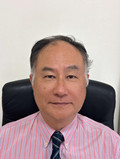
Prof. Kien Wen Sun |
Dr. Kien
Wen Sun was born in Taipei, Taiwan. He holds a
Ph.D. from the Department of Electrical
Engineering at Princeton University in New
Jersey, United States. From 1995-2000, he was on
the faculty of the Electronic Engineering at
Feng Chia University, Taiwan. He jointed the
faculty of Department of Physics as a professor
at National Dong Hwa University, Hualien,
Taiwan, from 2000-2005. Since year 2005, he
became a professor of Department of Applied
Chemistry at National Yang Ming Chiao Tung
University (formerly known as National Chiao
Tung University), Hsinchu, Taiwan. During his
sabbatical in 2012, he was a visiting professor
at Department of Electrical and Computer
Engineering of University of Waterloo, Canada.
Dr. Sun was appointed as the Department Chair of
Applied Chemistry at NCTU from 2012-2014. He was
also a Joint Appointment Professor at Department
of Electronics Engineering and Director of the
Center of Nano Science and Technology at
National Chiao Tung University from 2016-2019.
His research interests include femtosecond laser
and laser spectroscopy in III-V compound
semiconductors, spintronics, nanoimprint,
nanolithography, nanoelectronics,
organic/inorganic solar cells, diamond related
nanomaterials, perovskites and perovskite LEDs,
and chemosensors. He has published more than 200
SCI journal papers in above research fields. He
is a member of Phi Tau Phi Scholastic Honor
Society and Fellow of Hong Kong Chemical,
Biological & Environmental Engineering Society
(HKCBEES). He was given the Rudolph A. Marcus
Award by Publishing Division of Cognizure and
LOGNOR in 2017 and Taiwan Future Tech Award on
2020. He has served as reviewers for numerous
high impact international journals, such as
Nature Communications, Advanced Functional
Materials, Advanced Materials, The Innovation,
Nanoscale Horizons, etc. He served as Guest
Editors of several Special Issues of
Chemosensors and Talanta Open and is currently a
Topic Editor and an Editorial Board Member
(analytic chemistry) of Chemosensors. |
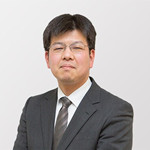
Assoc. Prof. Daigo Yonetsu |
Daigo
Yonetsu completed the course requirements of the
latter half of the doctoral program in
engineering at the Graduate School of
Engineering of Kansai University in 2003, and
then became a research associate in the Faculty
of Engineering. He became a lecturer in the
Faculty of Engineering Science of the same
university in 2007. He became an associate
professor in the Faculty of Engineering Science
of the same university in 2015. He holds a
D.Eng. degree and is engaged in research on
optimal design simulations of electrical
equipment, electric field optimal design
simulations of electric power equipment and
optimal design of cable size for economy and
environment. He received a 2007 IEIEJ Paper
Encouragement Award, and a 2020 IEIEJ Academic
Encouragement Award. He is a member of IEEE,
IEIEJ, IEEJ, the Japan Society for Simulation
Technology, and JSAEM. |

Prof. Kwan San Oscar Hui |
Kwan San
Oscar Hui is a Full Professor of Mechanical
Engineering at Prince Mohammad Bin Fahd
University, Saudi Arabia. He previously held
academic appointments at the University of East
Anglia, UK (Lecturer, 2016–2019; Reader,
2019–2024), Hanyang University, South Korea
(Assistant Professor, 2013–2016), and City
University of Hong Kong (Lecturer, 2008–2013).
He obtained his PhD in Mechanical Engineering
from the Hong Kong University of Science and
Technology in 2008. |
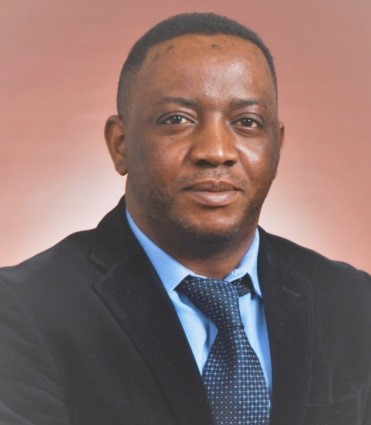
Assoc. Prof. Kwati Leonard |
Professor
Kwati Leonard is an associate professor at the
International Institute for Carbon-Neutral
Energy Research (I2CNER) at Kyushu University.
He earned his PhD in Applied Chemistry from the
University of Kagoshima, Japan 2011. That same
year, he established his expertise by receiving
the prestigious JSPS Post-Doctoral Fellowship
for Foreign Researchers. He then joined Kyushu
University, where he made significant
contributions to the advancement of energy
conversion devices. In 2012, he was honored with
a Young Scientist Award at the International
Conference on Nanostructure-Enhanced
Photo-Energy Conversion held in Tokyo, Japan.
Professor Leonard specializes in solid-state
electrochemistry and proton-conducting
materials. His research currently focuses on
processing ceramic proton conductor membranes
for electrochemical devices. Since 2018, he has
also been a visiting senior research scientist
at the Institute of Energy Materials and Devices
(IMD), Forschungszentrum Jülich, Germany. |
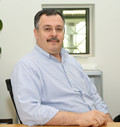
Prof. Muammer Koc |
Dr.
Muammer Koç is the Founding Professor and
founding Head (fmr) of the Division of
Sustainable Development at HBKU. Previously, he
held senior scientist, director, associate
professor, professor, chair and dean/director
positions at various universities in the US and
Turkey. He has a PhD degree in Industrial and
Systems Engineering from the Ohio State
University (1999) and Executive MBA degree from
the University of Sheffield, UK (2014). His
research and teaching interests are on
sustainability, resiliency; advanced
manufacturing, 3DP; energy policies and
technologies; design thinking, innovation and
education systems; organizational and social
efficiency; zero-waste policies and
technologies. He has 400+ publications in
various international journals and conferences.
In addition to his teaching and research
activities, he provides consultancy to business,
government and educational institutes for
strategic transformation, business optimization,
restructuring, business reengineering. |
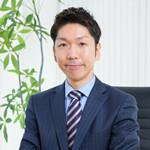
Dr. Daisuke Kodaira |
Dr.
Daisuke Kodaira is an Assistant Professor at the
Institute of Systems and Information
Engineering, University of Tsukuba, Japan. He
earned his Ph.D. in Electrical Engineering from
Kyungpook National University, Korea, in 2020.
His research focuses on advanced energy
management systems, including electric vehicle
charging coordination, blockchain-based
peer-to-peer energy trading, photovoltaic
generation and demand forecasting, and
reinforcement learning for battery scheduling.
He contributes novel algorithms and control
strategies that bridge cutting-edge artificial
intelligence techniques with practical power
system applications. He is an active member of
the Investigation Specialist Committee of the
Institute of Electrical Engineers of Japan
(IEEJ). |
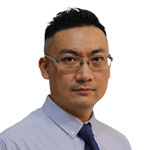
Assoc. Prof. Kwun Nam Hui |
Kwun Nam
Hui is an Associate Professor at the Institute
of Applied Physics and Materials Engineering
(IAPME), University of Macau. He received his
PhD in Electrical and Electronic Engineering
from the University of Hong Kong in 2009 and
held academic appointments at Pusan National
University before joining the University of
Macau in 2015. Dr. Hui research focuses on
advanced electrode and catalytic materials for
energy storage and conversion, including
lithium–sulfur, potassium-ion, sodium-ion, and
aluminum-ion batteries, as well as
supercapacitors and electrocatalytic systems
(ORR, OER, HER, CO₂RR, NRR). His group combines
nanostructure design, lattice/strain
engineering, molecular dynamics, and DFT
calculations to accelerate charge transfer and
reveal fundamental reaction mechanisms. |
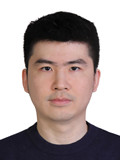
Dr. Yukai Wang |
Dr. Yukai
Wang is an Assistant Professor in the Department
of Electrical Engineering, Faculty of Science
and Technology at Tokyo University of Science,
Japan. He received his Ph.D. in Electrical
Engineering from The University of Tokyo in
2025. His research interests include inertia
estimation and compensation methods for power
systems, grid-forming converter applications for
stability support, and operational strategies
for battery energy storage systems. His work
emphasizes bridging theoretical analysis with
practical techniques to address the stability
challenges of modern low-inertia power grids. He
is a member of the Institute of Electrical and
Electronics Engineers (IEEE) and the Institute
of Electrical Engineers of Japan (IEEJ). |
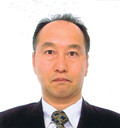
Assoc. Prof. Hironobu Matsuo |
Dr.
Hironobu Matsuo is an Associate Professor at the
Department of Electrical and Electronic
Engineering, Graduate School of Integrated
Science and Technology, Shizuoka University,
Japan. He received his Ph.D. in Integrated
Energy Engineering from Toyohashi University of
Technology in 1997 and has since been actively
engaged in academia at Shizuoka University. |
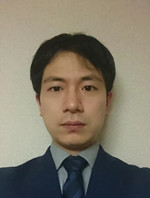
Assoc. Prof. Shinya Sekizaki |
Shinya
Sekizaki was born in 1986. He received his Ph.D.
in Engineering from Nagoya Institute of
Technology in September 2013. |
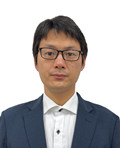
Dr. Bo Jie |
Bo Jie is
currently an Assistant Professor with the
Department of Electrical Engineering and
Information Systems Graduate School of
Engineering, The University of Tokyo, Japan. His
current research interests cover electric power
system operations and control, including
electric power system economics, power market
mechanism, system evolutionary computation, and
optimization. He is an editorial committee
member of the Journal of the Institute of
Electrical Engineers of Japan (IEEJ), editor of
the Cyber-Physical Energy Systems, Global
Journal of Energy Technology Research Updates
(GJETRU), guest editor of IET Smart Grid, IET
Energy Conversion and Economics, and Energies.
He is a member of IEEJ, J-PVS and IEEE. |
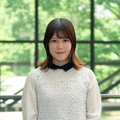
Dr. Nanae Kaneko |
Nanae
Kaneko received her B.E. and Ph.D. degrees in
engineering from Waseda University, Tokyo,
Japan, in 2018 and 2023, respectively. From 2023
to 2024, she served as Assistant Professor in
the School of Advanced Science and Engineering
at Waseda University. She is currently
affiliated with the Advanced Collaborative
Research Organization for Smart Society at
Waseda University. Her research focuses on
factor analysis and forecasting grid electricity
demand using statistical modeling and machine
learning techniques. She is a member of the
Institute of Electrical Engineers of Japan and
of the IEEE. |
Previous Invited Speaker
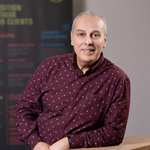
Dr. Hakim Nesreddine |
Hakim Nesreddine is currently an R&D project leader at Hydro-Quebec, a major Canadian electric utility. He is a holder of a BSc in climate control engineering and a PhD in mechanical engineering. He also earned a Master of Business administration (MBA) with a concentration in project management. Over the course of his career, he has acquired extensive experience in energy industry, both from a technical and business perspective. His expertise includes distributed power generation, waste heat recovery and energy conversion. During the last decade, Dr. Nesreddine led multidisciplinary teams dedicated to developing cutting-edge technologies and applications in partnership with leading companies. His current projects focus on integrating sustainable solutions and implementing advanced control logic for demand flexibility to decarbonize buildings and industrial processes. He has made numerous scientific and technical contributions, including peer-reviewed research papers, chapter books and patents. During his career, he was appointed adjunct professor at the University of Sherbrooke where he has taught undergraduate courses in science/engineering and acted as an adviser to PhD candidates. He has given several plenary lectures at international conferences and has been a member of expert panels on green energy and energy efficiency. In addition, Dr. Nesreddine has served on the steering Committee of the Canada Green Building Council and has participated in numerous technical committees and working groups of the Canadian Standard Association (CSA). Dr. Nesreddine is involved in international research collaborations with universities and public R&D laboratories to promote open innovation and professional/student exchanges. He is a member of the scientific and R&D committee of Institut Nordique du Québec and member of the advisory committee of NSERC Chair on energy efficiency in industry. |
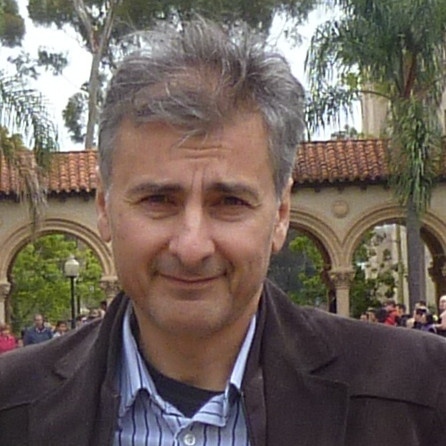
Dr. Kiamran Radjabli |
Kiamran Radjabli earned his Doctorate degree in Electrical Engineering from Moscow Power Engineering Institute. He is a Professional Engineer licensed in Ontario, Canada. He provided energy management consulting services to a number of electrical utilities in North America and abroad. Kiamran has over 25 years of experience in EMS/SCADA and real time applications, generation and transmission, power network analysis, power system modeling, and system simulation.
|

Assoc. Prof. Wongkot Wongsapai |
Wongkot
Wongsapai works as an Associate Professor in
Mechanical Engineering, Chiang Mai University,
where he is Deputy Director of Science and
Technology Research Institute (STRI) and he’s
also head of the Energy Technology for
Environment Research Center (ETE). |
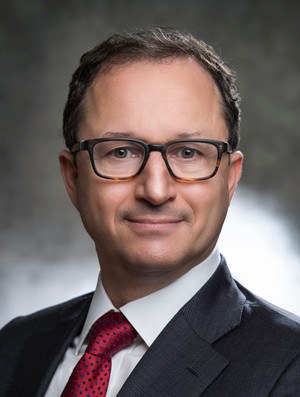
Michael Pesin |
Michael
Pesin is the Deputy Assistant Secretary for the
Advanced Grid Research and Development Division
at the U.S. Department of Energy's Office of
Electricity. His organization is responsible for
the development and management of projects for
next-generation electricity delivery
technologies and supporting activities to
accelerate their introduction to the
marketplace.
|
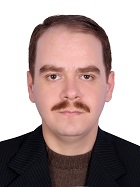
Dr. Farzin Asadi |
Farzin Asadi received his BSc in Electronics Engineering, MSc in Control Engineering, and PhD in Mechatronics Engineering. Currently, he is with the Department of Electrical and Electronics Engineering at Maltepe University, Istanbul, Turkey. Dr. Asadi has published more than 40 papers in ISI/Scopus indexed journals. He wrote 25 books as well. His research interests include switching converters, control theory, robust control of power electronics converters, and robotics.
|
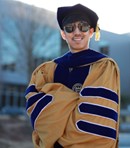
Dr. Paprapee Buason |
Dr. Paprapee Buason received his B.S. and M.S. de- grees in Electrical and Computer Engineering from the University of Illinois at Urbana-Champaign in 2016 and 2019, respectively. He completed his Ph.D. in Electri- cal Engineering at Georgia Institute of Technology in 2023. He is currently a postdoctoral research associate in the Theoretical Division at Los Alamos National Laboratory in Los Alamos, NM, USA. Dr. Buason’s research interests lie in power sys- tems, focusing on developing algorithms and solving advanced optimization problems to enhance the reliability and resiliency of power grids.
|